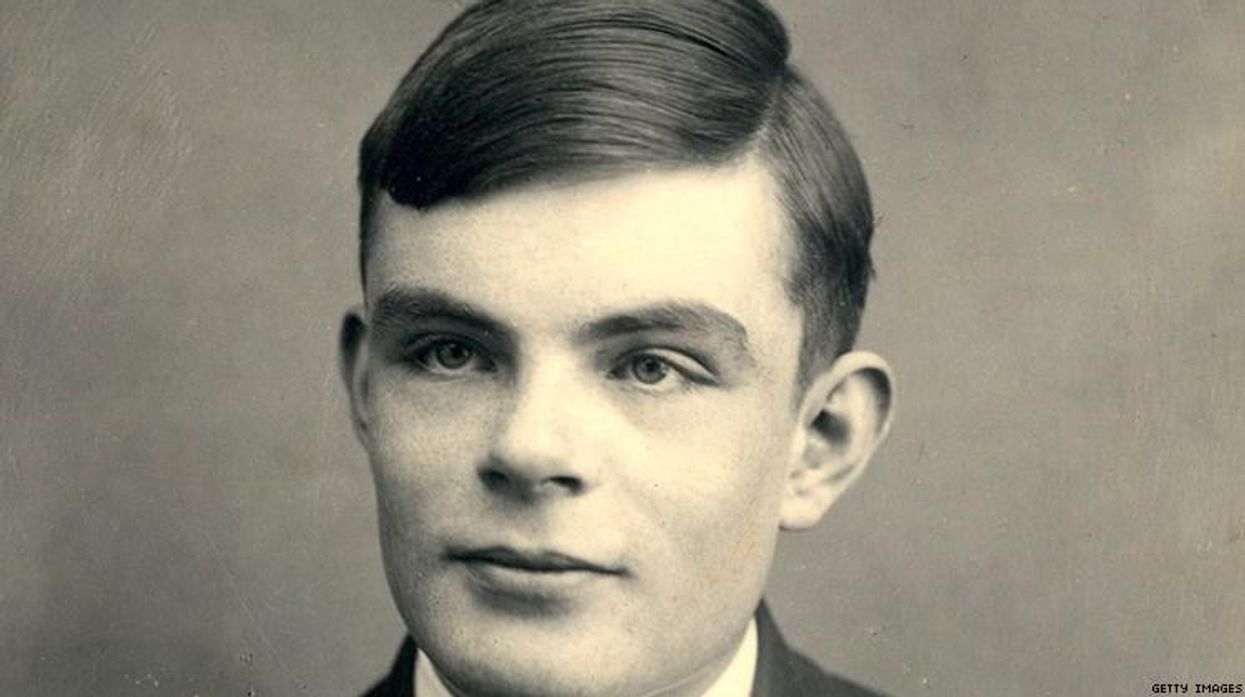A brilliant mathematician whom the British government persecuted for being gay, Alan Turing has been honored with an obituary in The New York Times more than half a century after his death.
Though Turing would go on to be celebrated as the "progenitor of modern computing" who "produced seminal insights into what became known as artificial intelligence" after his death, the British mathematician's life ended in secrecy and shame. In 1952 -- mere years after he cracked the Nazi's Enigma code allowing Allied forces to decrypt their enemies messages and track their movements -- was charged and convicted of homosexual acts and forced to endure chemical castration in lieu of prison time. (His punishment consisted of taking doses of estrogen, essentially amounting to a kind of unwanted hormone replacement therapy.) Two years later, Turing was found dead in his home of cyanide poisoning. He was 41. A coroner ruled that he had taken his own life -- though, as obituary author Alan Cowell notes, many disputed the verdict, including Turing's own mother.
The obituary of Turing -- whom Benedict Cumberbatch portrayed onscreen in the 2014 Academy Award-winning film, The Imitation Game -- is part of the Times's "Overlooked" series, which comprises posthumous tributes to significant historical figures in modern history whom the paper never eulogized at the time of their death, like Marsha P. Johnson and Ida B. Wells. According to a note at the top of Turing's obituary, "Overlooked" will feature exclusively LGBTQ+ figures in honor of Pride month.
RELATED | Alan Turing in Running to Become Face of PS50 Note






























I watched the Kid Rock Turning Point USA halftime show so you don't have to
Opinion: "I have no problem with lip syncing, but you'd think the side that hates drag queens so much would have a little more shame about it," writes Ryan Adamczeski.